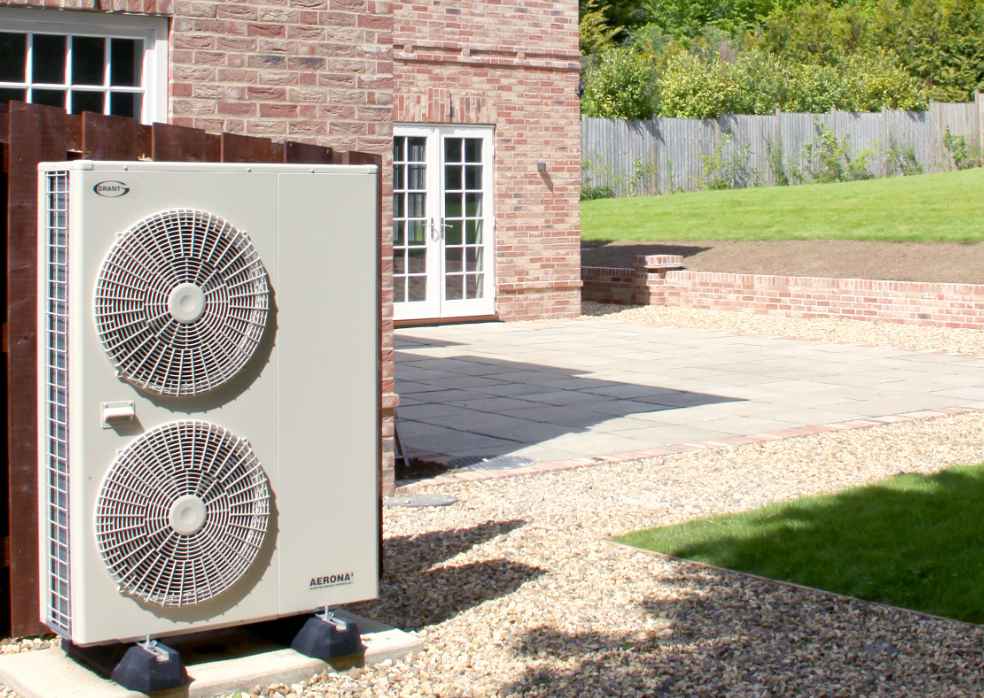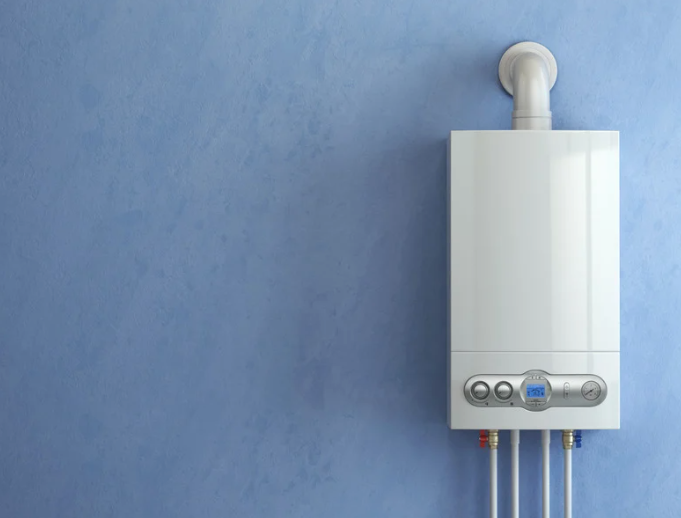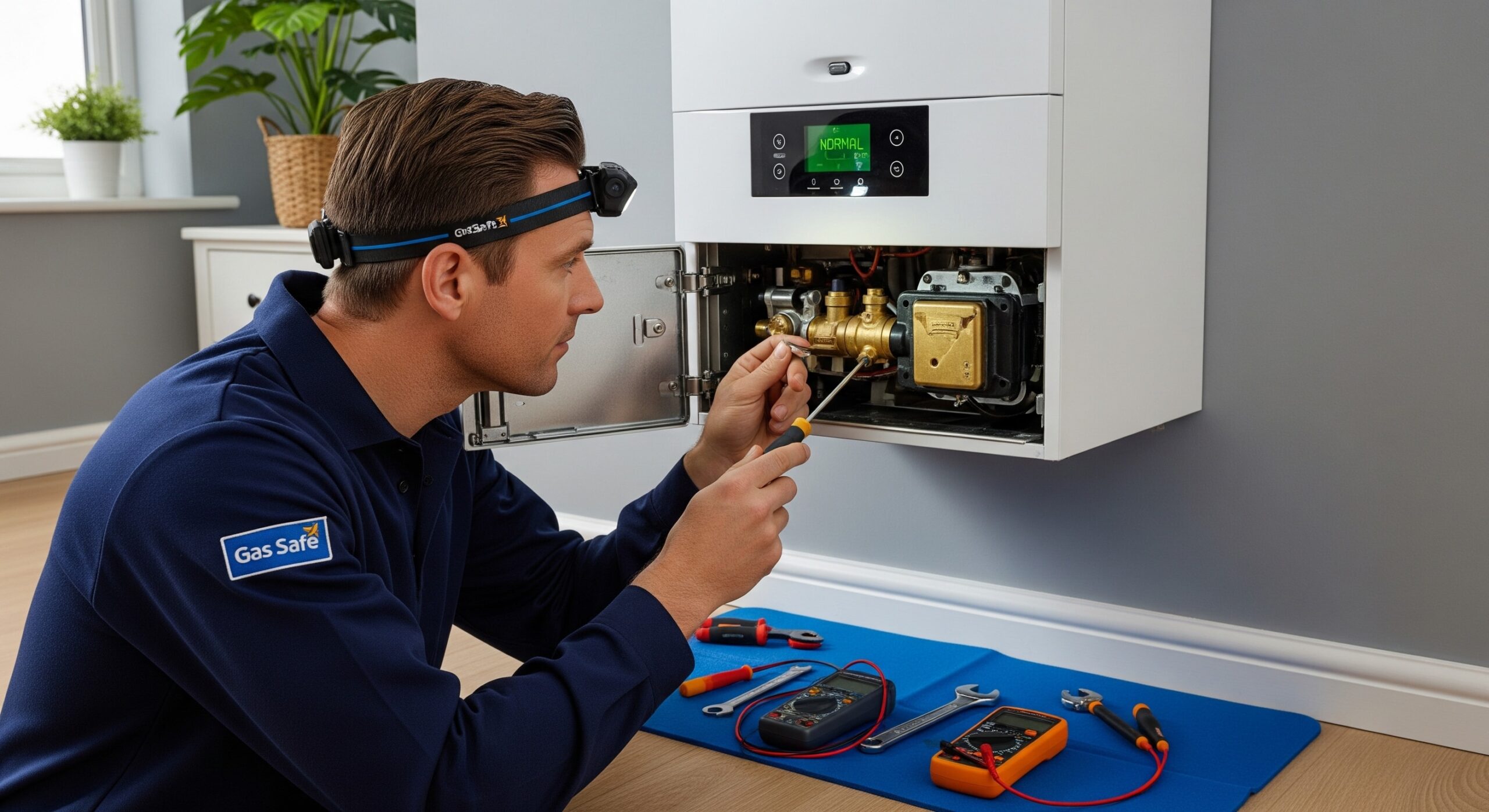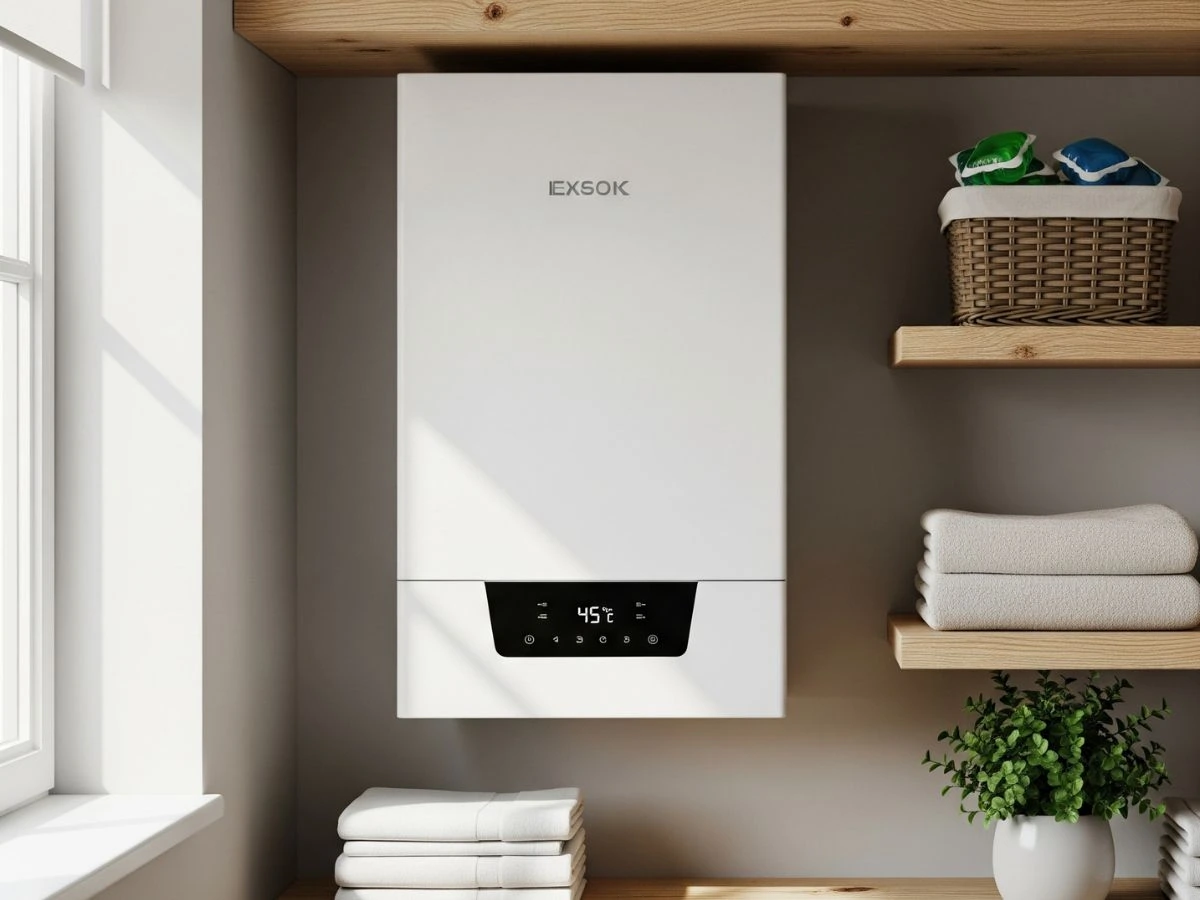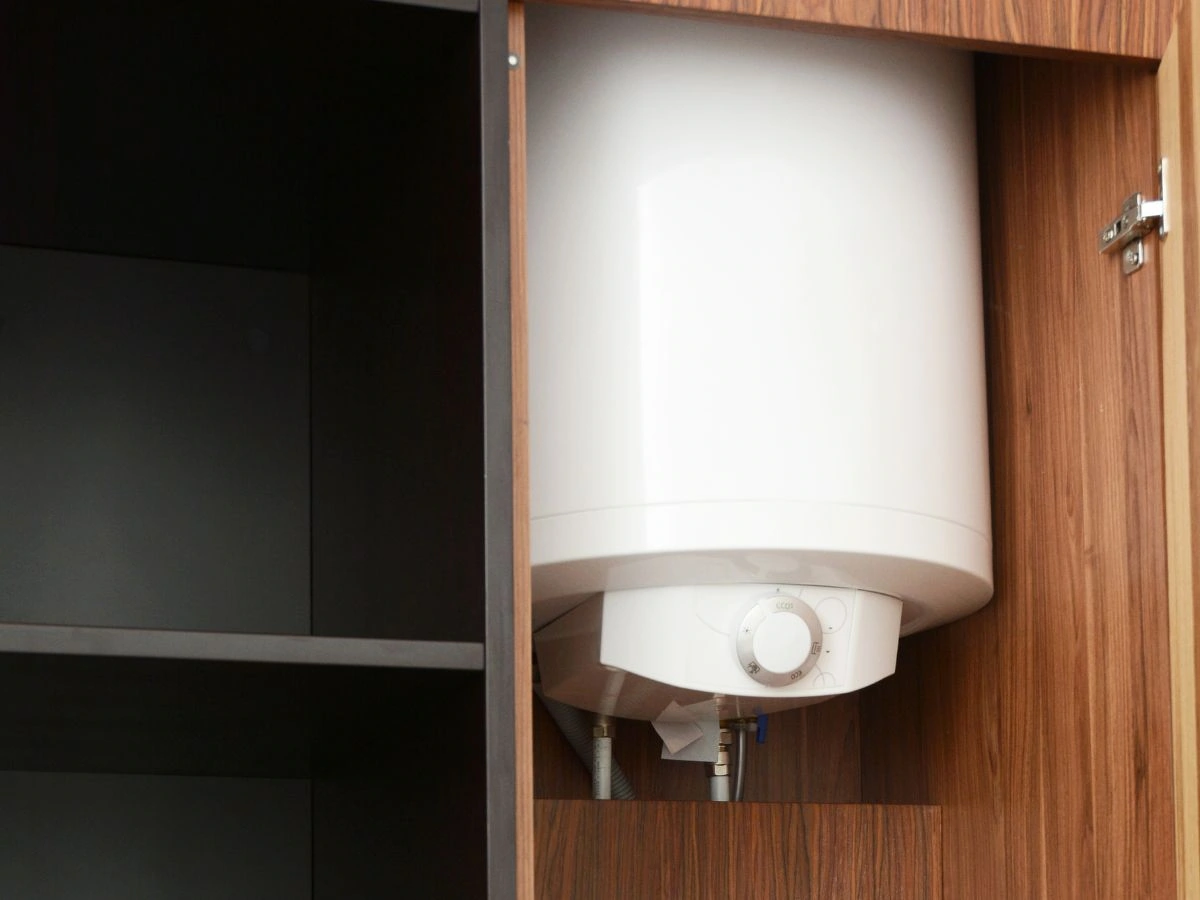As another winter dies away in the UK, many homeowners are opening their energy bills with growing dread. With average household energy costs rising by over 27% in recent years and environmental concerns at an all-time high, finding efficient ways to heat our homes has never been more important. For residents in the North East especially, where temperatures can be particularly bitter, the search for cost-effective heating solutions is becoming increasingly urgent.
Heating accounts for approximately 60% of the average UK household’s energy usage. Evaluating your current heating system is crucial to finding the best solution for energy-efficient heating. By understanding your existing setup, you can transition to more efficient or low carbon heating solutions. UK homeowners can enjoy significant environmental and financial benefits while keeping their homes comfortably warm throughout the colder months.
Energy Efficient Heating Solutions UK: Saving Money and the Planet in Homes
Energy efficiency is crucial in reducing heating bills and minimising carbon footprint. With the rising costs of energy and the increasing concern for the environment, it’s essential to explore efficient heating systems. Electric heating systems, such as electric boilers and heat pumps, offer a low-carbon alternative to traditional gas boilers. By understanding the different types of heating systems and their efficiency, homeowners can make informed decisions to save money and reduce their environmental impact.
Electric heating systems are particularly advantageous as they can be powered by renewable energy sources, such as solar power, further reducing their carbon footprint. These systems are designed to convert electricity into heat with minimal energy loss, making them highly efficient. For instance, heat pumps can transfer heat from the outside air or ground into your home, providing a sustainable and cost-effective heating solution. By investing in energy-efficient heating systems, homeowners can significantly lower their heating bills and contribute to a greener planet.
Understanding Energy Efficiency in Home Heating
Energy efficiency in home heating refers to how effectively a system converts energy into heat. An electric heating system, for example, is known for its efficiency and environmental benefits. A more efficient system produces more heat using less energy, resulting in lower heating costs and reduced carbon emissions.
EPC Ratings and Their Importance
Energy Performance Certificates (EPCs) rate properties from A (most efficient) to G (least efficient) based on their energy usage and carbon dioxide emissions. Better EPC ratings not only reduce energy costs but can also increase property value – homes with higher ratings can command premiums of up to 14% in some UK regions.
In the North East, where many homes were built before modern energy standards, EPC improvements through heating upgrades can be particularly valuable. Most properties in areas like Newcastle, Durham and Northumberland currently sit in bands D-E, showing significant room for improvement. Upgrading home heating systems, especially those relying on oil or LPG, can significantly enhance EPC ratings by improving energy efficiency and reducing carbon emissions.
Heating system efficiency is typically measured as a percentage, indicating how much of the energy consumed is converted into useful heat. Modern systems can achieve efficiency ratings above 90%, while older systems might operate at just 60-70% efficiency.
Top Energy-efficient Heating Solutions for UK Homes
Heat Pumps: The Future of Home Heating
Heat pumps represent one of the most promising low-carbon heating technologies available today. Rather than generating heat, they move existing heat from outside sources into your home.
Compared to other heating systems, heat pumps are generally more efficient and can offer lower running costs, although their initial installation expenses are higher.
Air Source Heat Pumps
Air source heat pumps extract heat from the outside air, even in temperatures as low as -15°C. These systems typically offer efficiency ratings (Coefficient of Performance or CoP) of 3.0-4.0, meaning they produce 3-4 units of heat for every unit of electricity used.
While installation costs range from £8,000-£12,000, running costs can be up to 30% lower than traditional gas boilers. For North East homes currently using electric heating, the savings can be even more substantial.
Ground Source Heat Pumps
Ground source heat pumps harness heat from the ground using pipes buried in your garden. With efficiency ratings often exceeding 4.0, these systems offer even greater energy savings, though at a higher initial cost.
These systems need sufficient garden space for the ground loop installation, making them more suitable for properties with larger gardens in Northumberland and Durham’s rural areas.
Modern Condensing Boilers
For many UK homes, especially those connected to the gas network, modern condensing boilers offer a cost-effective efficiency upgrade. The upcoming UK gas boiler ban in 2025 is pushing for a transition to low-carbon heating solutions.
Modern condensing boilers extract additional heat from waste gases, achieving efficiency ratings of 92-94% compared to around 70% for older non-condensing models. For the average North East home, this can translate to annual savings of £200-£300 on heating bills.
While gas condensing boilers are most common, oil condensing options offer similar efficiency benefits for rural properties in Northumberland and Durham that aren’t connected to the gas network. In rural areas, particularly in Northern Ireland, over two thirds of homes rely on oil boilers for their primary heating.
Electric Heating Innovations
For homes without gas connections, modern electric heating offers significantly improved efficiency over older systems.
Today’s high-heat-retention storage heaters are vastly superior to older models, with better insulation and more sophisticated controls. These can be up to 27% more efficient than outdated storage heaters commonly found in flats and smaller homes across Newcastle and Sunderland. Additionally, electric storage heaters can draw electricity during off-peak hours at a lower cost, especially when paired with tariffs like Economy 7 or Economy 10.
Infrared panels heat objects and people directly rather than warming the air, providing instant comfort with less energy wastage. These slim-profile units can be wall or ceiling mounted and work particularly well in smaller spaces. Electric underfloor heating, while generally more expensive than gas options, remains more affordable than installing heat pumps or solar panels, making it a viable option for those looking to minimise their heating bills and improve energy efficiency.
Modern electric radiators feature precise digital thermostats and programming options that older models lack. Some can even learn your habits and adjust heating patterns accordingly. A new electric heating system can significantly reduce carbon emissions and enhance energy efficiency, making it an excellent choice for those renovating or upgrading their heating systems to achieve net zero goals.
Electric Boiler Systems
Electric boiler systems are a popular choice for homeowners looking for a low-carbon heating solution. These systems use electricity to heat water, which is then circulated throughout the home. Electric boilers are energy-efficient and can be powered by renewable energy sources, such as solar power. They are also relatively low-maintenance and can be installed in a variety of locations. However, electric boilers can be more expensive to run than gas boilers, especially in areas with high electricity costs.
One of the key benefits of electric boilers is their ability to provide consistent and reliable heating without the need for fossil fuels. This makes them an excellent option for homes aiming to reduce their carbon footprint. Additionally, electric boilers are compact and can be installed in smaller spaces, making them suitable for a wide range of properties.
Cost Analysis and Return on Investment
While traditional gas boilers typically cost £2,000-£3,000 to install, heat pumps range from £8,000-£18,000 depending on the type. Biomass systems generally fall between £5,000-£15,000, and modern electric systems vary widely from £1,000 for simple panel heaters to £7,000 for whole-house solutions. Among the cheapest options for heating fuels, oil and gas are often highlighted, though sustainability and future regulations may impact their long-term viability.
Annual running costs vary significantly: approximately £650 for ground source heat pumps, £800 for air source heat pumps, £700 for gas condensing boilers, £1,100 for biomass, and £1,400 for modern electric systems in an average three-bedroom semi-detached house in the North East. While heat pumps operate at much higher efficiency levels, the higher cost of electricity compared to gas can be offset by overall savings on energy bills, making them a financially viable option.
Government Incentives and Support Schemes
The Boiler Upgrade Scheme offers grants of £7,500 towards air source heat pump costs or £6,000 for ground source installations, significantly reducing the upfront investment required.
The Energy Company Obligation (ECO) scheme requires energy suppliers to help vulnerable households and those in fuel poverty improve energy efficiency. Eligible homeowners in the North East can receive free or heavily subsidised insulation and heating improvements. In rural areas, liquid petroleum gas (LPG) is often used as an alternative to oil and electricity, and its inclusion in heating controls can be supported by these schemes. In Northern Ireland, where oil heating is prevalent, liquid petroleum gas (LPG) is also a viable option for off-grid heating solutions.
Many energy-efficient heating products qualify for reduced VAT rates of 5% rather than the standard 20%, offering immediate savings on installation costs.
Several North East councils offer additional support through schemes like the Warm Homes Fund and Green Homes Grant Local Authority Delivery scheme. Newcastle City Council, for example, provides grants of up to £10,000 for eligible households.
Smart Meters and Energy Efficiency
Smart meters are an essential tool in monitoring energy use and reducing heating bills. These meters provide real-time energy usage data, allowing homeowners to identify areas of inefficiency and make adjustments to their heating system.
The real-time data provided by smart meters enables homeowners to see exactly how much energy they are using and when. This information can be invaluable in making informed decisions about energy use, such as adjusting heating schedules to take advantage of off-peak hours. Additionally, smart heating controls can learn your heating preferences and automatically adjust settings to ensure maximum efficiency. By combining smart meters with smart heating controls, homeowners can achieve a more efficient and cost-effective heating system.
Maximising Efficiency Through Proper Insulation
Proper insulation can reduce heating requirements by up to 40%, potentially allowing for smaller, less expensive heating systems and dramatically improving their performance. In the North East’s older housing stock, insulation upgrades often deliver even greater benefits. For certain heating systems, such as regular boilers, a separate hot water cylinder is essential for storing hot water, highlighting the importance of understanding various heating setups.
The biggest heat losses typically occur through the roof (25%), walls (35%), floors (10%), and windows and doors (25%). Addressing these areas systematically offers the best return on investment.
Loft insulation remains one of the most affordable and effective improvements, costing around £300-£400 for an average home with savings of approximately £150 per year. Cavity wall insulation offers similar value, while solid wall insulation, though more expensive, can save up to £350 annually.
Different heating systems benefit from specific insulation approaches. Heat pumps, which operate most efficiently at lower temperatures, gain particular advantage from comprehensive insulation upgrades and draught-proofing.
Central Heating System Maintenance
Regular maintenance is crucial in ensuring the efficiency and effectiveness of central heating systems. This includes checking and replacing filters, bleeding radiators, and inspecting pipes for leaks. Homeowners should also consider having their central heating system serviced annually by a qualified professional. This can help identify potential issues before they become major problems, reducing the risk of breakdowns and minimising repair costs. By maintaining their central heating system, homeowners can ensure it runs efficiently, reducing energy consumption and lowering heating bills. Additionally, regular maintenance can help extend the lifespan of the system, saving money on replacement costs in the long run.
Making the Switch: Practical Steps for UK Homeowners
Begin with a professional energy assessment to understand your home’s current performance and identify the most suitable improvements. An EPC assessment costs approximately £60-£120 but provides valuable insights into potential energy savings. Additionally, consider using different heating systems for different rooms to optimise energy efficiency and tailor heating solutions to specific needs.
Look for installers with appropriate certifications: MCS (Microgeneration Certification Scheme) for renewable technologies, Gas Safe for gas boilers, and OFTEC for oil systems. Always request multiple quotes and check references from previous customers, ideally in your local area. For supplementary heating, electric heaters can be used effectively in short bursts to complement existing systems, despite their higher running costs.
Conclusion
Upgrading to an energy-efficient heating system represents one of the most impactful changes UK homeowners can make to reduce both their environmental impact and energy costs. Various heating options are available to heat your home, including heat pumps, biomass boilers, and solar energy systems. Homes have been heated throughout history, transitioning from burning solid fuels in fireplaces and stoves to modern central heating systems. For larger buildings or businesses, investing in a reliable commercial heating system is equally important to ensure efficiency and comfort. Time of use tariffs can help save on energy bills by providing lower rates during off-peak hours. Warm air systems, such as air-to-air source heat pumps, are effective for smaller homes and provide both heating and cooling.
As energy prices continue their upward trend and environmental regulations tighten, today’s investment in efficient heating becomes increasingly valuable. Homes in the North East stand to benefit particularly from these improvements due to the region’s colder climate and older housing stock. Contact us today to find out how you can upgrade your heating system and start saving.

